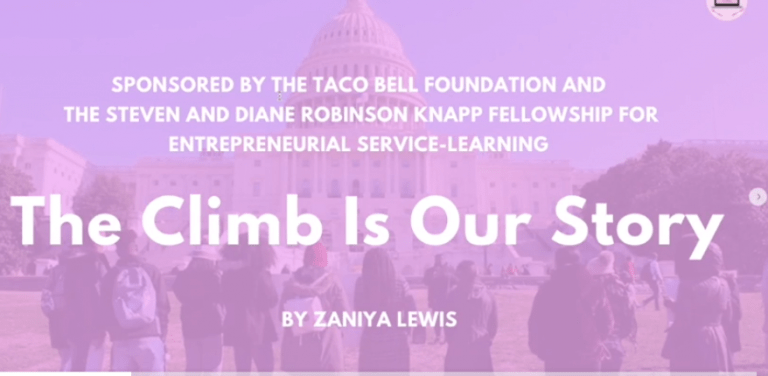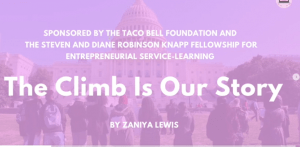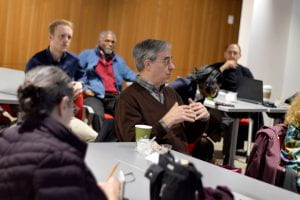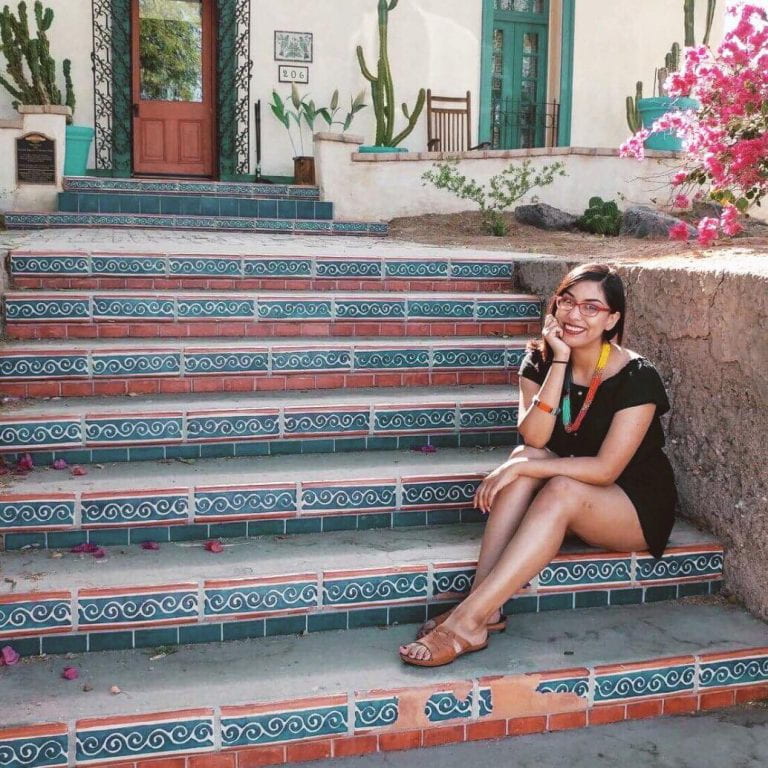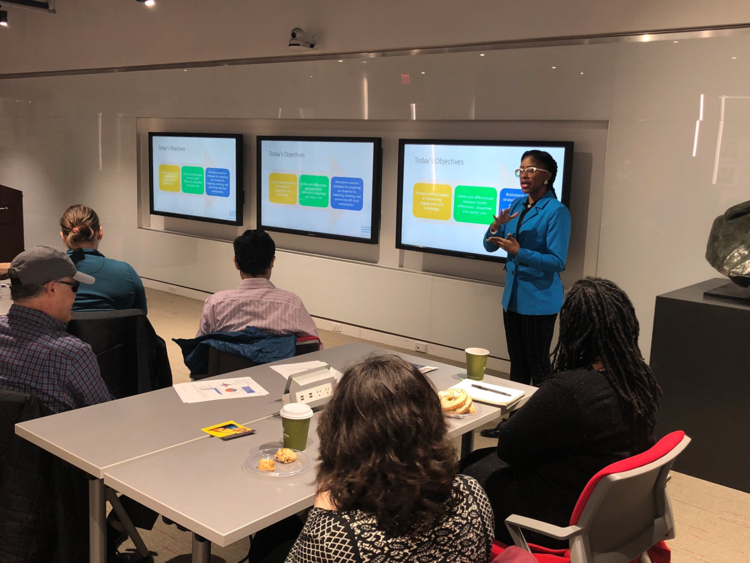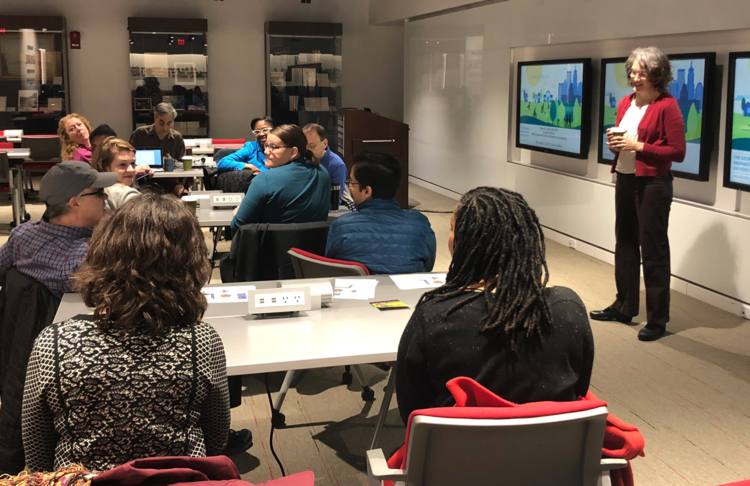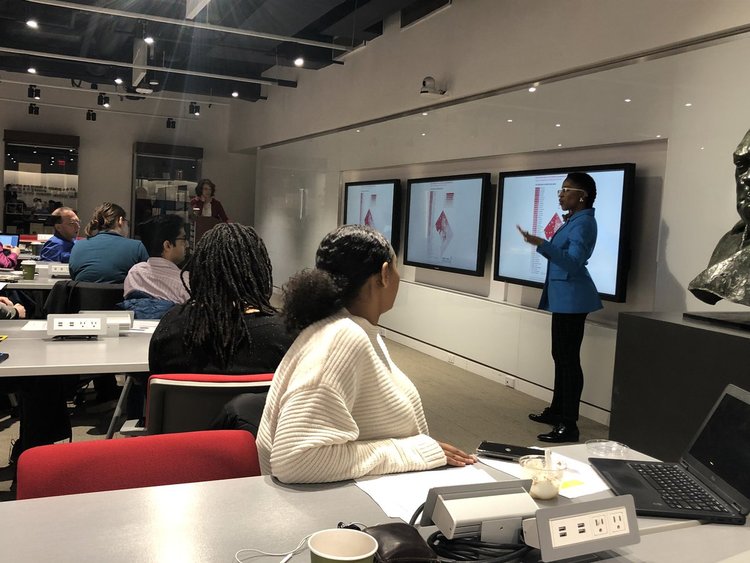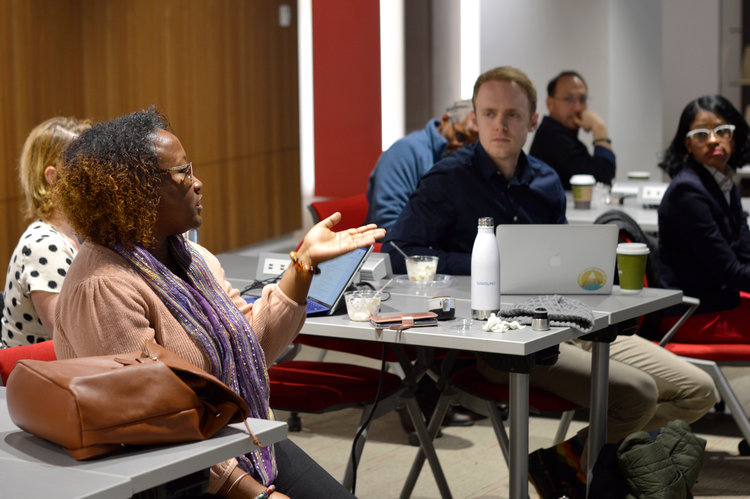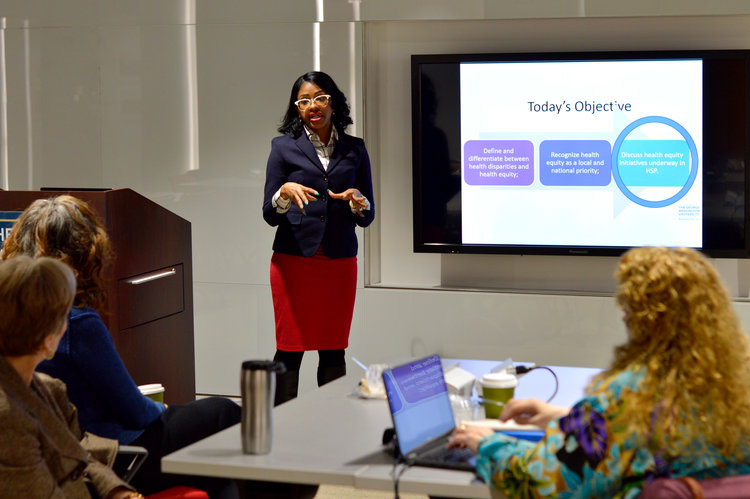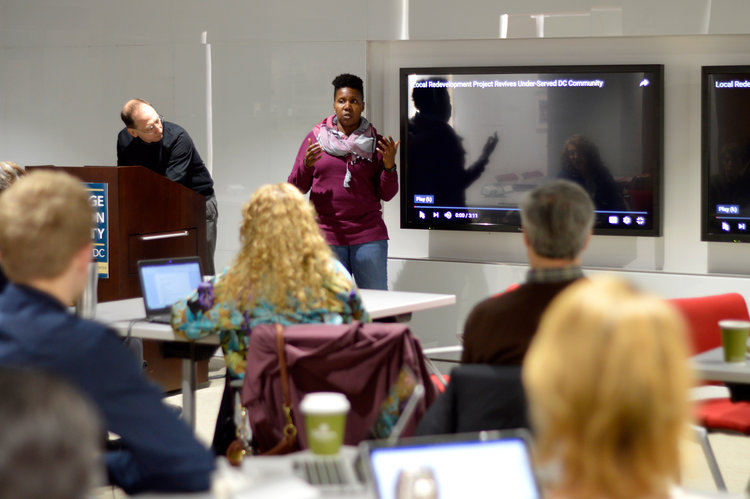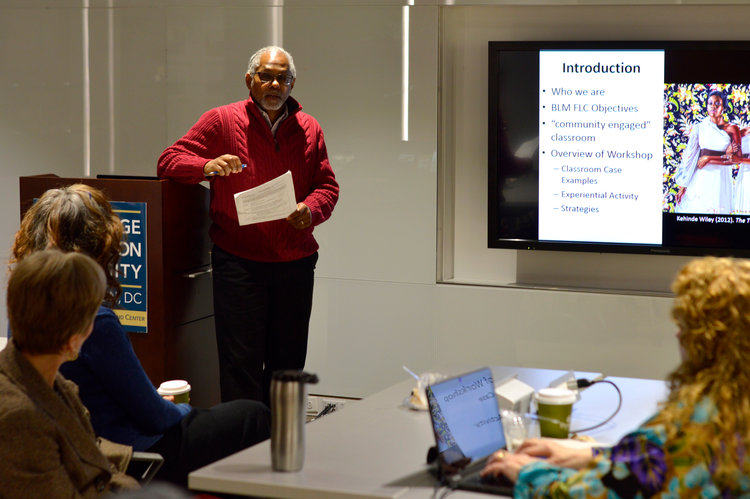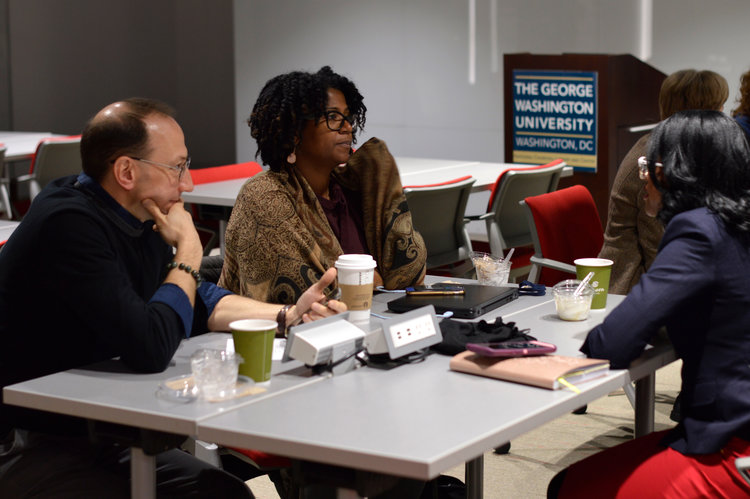“The Climb Is Our Story” will provide college and career readiness skills to School Without Walls high school students who participate in the Multicultural Student Services Center student internship program. GW students will facilitate college and career readiness workshops with the assistance of the MSSC from September 2019 - May 2020.
Zaniya Lewis, a 2019-2020 Knapp Fellowship winner is a senior studying Political Science with a minor in Human Services and Social Justice. Community-Engaged Scholar, Emebte Atanaw, sat down with her to learn more about her research project.
Zaniya created this program because School Without Walls does not have a college prep course, this program will help students prepare for college success. All students participating in the program are overcoming obstacles to get ready for life beyond high school. The program includes a service component, students will volunteer at least once a month at a local non-profit organization during the school year. At the end of the program, students will have the opportunity to participate in The Climb Tour visiting local businesses in D.C. to learn about career opportunities. After completing the program students will have a portfolio that of college and career tools.
Lewis will use surveys throughout the program to measure success and assess how the program could be adjusted in the future. In addition, there are individual target goals for students who participate in the program. The project will be a model for other high schools looking to improve their college and career preparation program.
Zaniya believes it’s important to incorporate members of the community into her research. Lewis explains, “My whole project is about helping others on their climb and leaving the door open. As college students, we have experienced the college and career process, so why not teach students the lessons we learned from our experience. My goal has always been to use what I have learned and give back to others.”
In the future, Zaniya hopes to implement her program at other schools throughout the United States with college and career readiness. She will do this by partnering with more businesses, and her non-profit organization, the YesSheCanCampaign.
if you are interested in learning more about Zaniya’s work visit her website
http://www.yesshecancampaign.org
Applications for next year's Knapp Fellows are open to learning more about the fellowships and application information click here.


